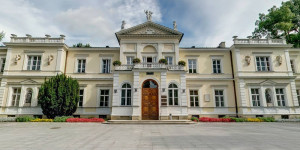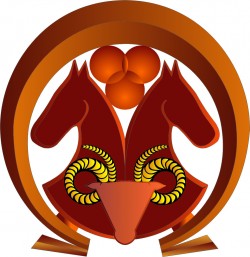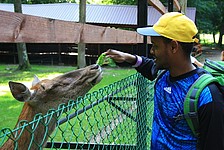Announcement from the Rector of WULS-SGGW
 nformation from Professor dr hab. Wiesław Bielawski on the functioning of the University during the epidemiological threat
nformation from Professor dr hab. Wiesław Bielawski on the functioning of the University during the epidemiological threatLadies and Gentlemen,
Dear Colleagues,
Dear Students,
as the epidemiological emergency in Poland has been introduced, the academic community of the Warsaw University of Life Sciences is facing a difficult period of the fight against the coronavirus.
First of all, I would like to thank the employees and I would especially like to thank the students of our University for understanding and maturity related to the difficult decisions that the authorities of WULS-SGGW must take in order to protect us all from the consequences of the epidemiological threat.
I am asking all employees, students and doctoral students to comply with the principles set out in the communications of state and local authorities, especially the recommendations of GIS, guided by social well-being, as well as the well-being of our university. The situation will probably change constantly, so please follow the messages published and updated on the WULS-SGGW websites and social media.
In this extraordinary situation we are asking you to:
- limit direct contacts to the minimum necessary with both the University employees and with people outside of the academic community,
- in workplaces where personal contacts are particularly frequent (student dorms, reception desks, secretariats etc.,) take special precautions by ensuring appropriate conditions and safe distance between persons contacting each other (please mark the safe distance and provide clear information about the principle, and if it is possible – organize so called ‘buffer zones’ e.g. for documentation transfer),
- introduce the rule of remote work in research institutes (where possible),
- prepare didactic materials for conducting remote teaching of students, enable students and doctoral students distance learning in various forms such as remote lectures, consultations etc.,
- suspend work-related trips abroad and participation of university employees, doctoral students, and post-graduate students in conferences held in the Republic of Poland; suspend domestic and international exchange of students and university employees.
This also applies to all trips planned under the WULS-SGGW Scholarship Fund. These trips are postponed to a later date. Interruption of the Internship financed by the WULS-SGGW Scholarship Fund are possible, and the financing and settlement of the internships will be considered individually.
I would also like to ask you to take care of our retired employees and people at risk. It is them that should be provided with safe and comfortable work conditions in the first place. Let’s contact them and help them if we can.
Ladies and Gentlemen, let’s together make the effort so that this period goes smoothly and in accordance with the principles of the academic community. I’m sure that with understanding of the situation and mutual kindness, these challenging processes will run smoothly, for the good of us all. I wish us all that we can soon return to regular learning and working conditions.
Wiesław Bielawski
The Rector of the WULS-SGGW












